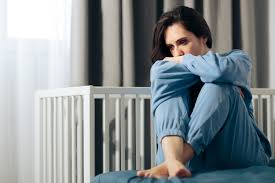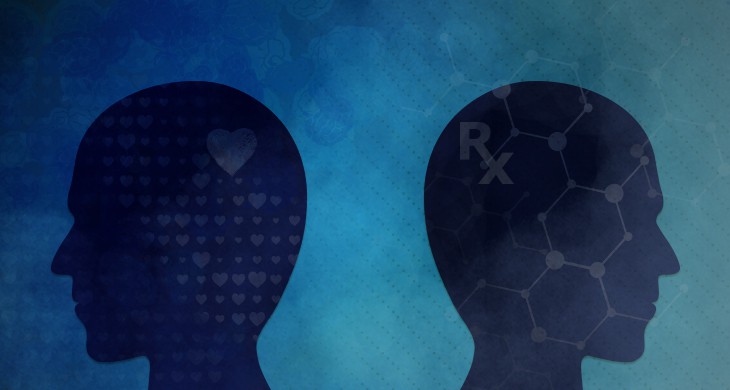Lots of individuals try to imagine “what does depression feel like”. Depression appears to be linked to dysfunctional nerve cell networks or pathways that connect the parts of the brain responsible for processing emotions. A few of these networks also process data for pain perception. According to a large number of specialists, depression might cause you to perceive pain differently than other individuals.
One of the most frequent misconceptions regarding depression is that it’s the same as feeling depressed or gloomy.
Even though melancholy is a common feeling among persons with depression, it feels far more intense than emotions that come and go in reaction to events in life.
The effects of depression can make it difficult or impossible to go about daily life for months or even years at a time.
It may interfere with work, relationships, and regular responsibilities like cleaning and self-care.
What Does Depression Feel Like Physically
Many people think that in order to get therapy for their depression, it must be severe and cause substantial problems in their lives. They fail to comprehend that some of the less obvious symptoms of this condition are frequently the first signals of a problem. Here are some examples of how depression could make you feel.
Symptoms of depression can manifest themselves in a variety of ways, depending on your age and unique situation.
These are a Few Ways that Typical Depressive Symptoms May Appear:
Depression Makes it Seem Like There is No Hope
One typical sign of sadness is a loss of hope. You can feel as though you are always moving forward and backward in three steps. You could be left thinking, So why try? Or perhaps you glance at your schedule and discover nothing exciting is coming up.
Guilt or shame about a past situation might also reflect a sense of helplessness.
When you’re depressed, everything seems distressing.
Anxiety and irritability are frequently observed in depressed individuals.
Perhaps you get angry with family members about things that didn’t upset you previously, such as when they consume the last of your favorite comfort food or block your car in the driveway.
Additionally, you might catch yourself dwelling on social encounters or anticipating the worst-case scenario with regard to your relationships, your profession, or your studies.
You can feel overburdened since issues that previously didn’t concern you suddenly seem major.
Depression Resembles Excessive Sleeping or not enough.
Depression frequently affects both your appetite and sleep patterns.
Even though you had a restful night’s sleep, you can discover that you want to sleep all day.
Or perhaps your mind races while you’re sleeping, focusing intently on the present and the future. Although your body is sufficiently worn out for sleep, you simply cannot.
Depression Makes You Want to Sob Uncontrollably all Day
A lot of people who are depressed can have fits of extreme grief or crying.
You might start crying in the middle of a song or commercial, or just out of the blue while working at your computer.
Look for a means to deal with your emotions while you navigate this.
Some people can find it enjoyable to listen to music that resonates with their feelings. Others might discover that keeping a journal is quite beneficial, “she explains. In order to figure out what works, some trial and error are necessary.
Depression is Similar to Losing Identity and Interests
You might discover that once-enjoyable activities no longer pique your attention.
You can feel strange or desire to go back to “your normal” if you can’t enjoy things that used to make you happy.
Depression is Like Being Unable to Leave Your Bed
It’s not your imagination: Fatigue is a typical sign of depression. Research from 2018 suggests that inflammation and a depleted oxygen supply may be to blame.
Your poor energy and lack of motivation may come off as “laziness” to others. But this isn’t a matter of personal preference.
Little things like sorting the mail or brushing your teeth can feel utterly overwhelming if you suffer from depression.
Depression Resembles a Lack of Productivity
You are not imagining things if you feel like your brain has been working differently lately. Depression has several cognitive side effects.
Low motivation, difficulty concentrating, lack of energy, and lack of sleep can all make it difficult to do daily tasks like going to the gym, doing your grocery shopping, or even balancing your checkbook.
Depression Causes Physical Discomfort
According to research by trusted sources, sadness and physical sensations like pain may be related, possibly as a result of an imbalance in the brain’s neurotransmitters, or chemical messengers.
The neurotransmitters that affect mood control are the same ones that affect pain perception, such as serotonin and norepinephrine.
Because sadness lowers the threshold for pain, those who are depressed may have joint and muscle discomfort. You could develop fibromyalgia, joint discomfort, or more frequent headaches.
Depression Makes You Want to Harm Yourself
Suicidal ideation ranges from contemplations of suicide to actual attempts.
This might only be a passing thought, similar to wanting to sleep through the night or being okay with the possibility of being in a deadly vehicle accident.
It might also involve doing something more active, like making a strategy or picking a time to hurt yourself.
You can overcome these feelings, whatever they may be. The depression is speaking here. To deal with this suffering, there are tools at hand.
What Does Depression Feel Like in Your Head
Being such a complicated disorder, depression can be challenging to define and diagnose using a single set of generic criteria. Because of this, many types of depression are defined by other categories.
Major or clinical depression and persistent depressive disorder are the two most prevalent types of depression, according to the National Institute of Mental Health.
What Feelings Are Related to Depression
People who have these symptoms may never receive treatment for them because they are common to many diseases. They are unaware that their mental disease may be the root of their physical issues. Many doctors also miss them.
#1. Sleep Issues
Both your body and your thinking can be impacted by depression. People who are sad frequently have trouble falling or staying asleep. However, some people could discover that they sleep too much.
#2. Chest Ache
Consult your doctor to rule out any potential causes since it could be an indication of heart, lung, or stomach issues. But occasionally, it’s a sign of despair.
Heart disease risk is also increased by depression. Additionally, heart attack survivors are more likely to experience depression.
#3. Exhaustion and Fatigue
Even when you sleep or rest a lot, if you feel as though you lack the energy for routine duties, it could be a sign of depression. Combining depression and exhaustion often makes both illnesses worse.
#4. Muscle and Joint Pain
Living with constant pain increases your risk of becoming depressed.
Because the two illnesses exchange brain chemical mediators, depression and pain may coexist. Regular discomfort is three times more likely to occur in depressed individuals.
#5. Digestion Issues
Because of the close relationship between our brains and digestive systems, many people experience nausea or stomachaches while under stress or worry.
You can have nausea, indigestion, diarrhea, or constipation due to depression.
#6. Headaches
According to one study, migraineurs are five times more likely to develop major depression and persons with major depression are three times more likely to get migraines.
#7. Weight or Appetite Changes
When they are depressed, some people have decreased hunger. Others are food addicts. Lack of energy and weight growth or loss are possible outcomes.
Eating disorders including bulimia, anorexia, or binge eating have been connected to depression.
#8. Backache
When you experience pain there frequently, depression may result. And severe, incapacitating neck or back pain may occur four times more frequently in depressed individuals.
#9. Restless and Agitated
You may experience this due to sleep issues or other depressive symptoms. When they are depressed, men are more likely than women to become irritable.
#10. Sexual Issues
You might stop wanting sex if you’re depressed. Some prescription medications used to treat depression might impair performance and sap motivation. Discuss your medication options with your doctor.
#11. Exercise
According to research, doing it frequently causes your brain to generate hormones that lift your mood, make you feel better, and make you less sensitive to pain.
Even if exercise by itself cannot treat depression, it can assist in the long run.
It can occasionally be difficult to get the energy to exercise when you’re melancholy. But try to keep in mind that it can reduce fatigue and improve your sleep.
How Do You Feel When You’re Depressed
Many people think that in order to get therapy for their depression, it must be severe and cause substantial problems in their lives. They fail to comprehend that some of the less obvious symptoms of this condition are frequently the first signals of a problem. Here are some examples of how depression could make you feel.
Depression gives the impression that life is devoid of joy or pleasure. It’s so much more than just being depressed because sadness causes people to lose the things they formerly loved. Many people believe that nothing will ever make them happy again.
#1. Decision
making of any kind becomes quite difficult since concentration and attention become much more difficult. since they are unable to think clearly or pay attention to what is going on around them, people will occasionally describe this as being in a fog.
#2. For Many People Who are Depressed
it seems impossible to recover. There doesn’t seem to be any relief in sight, and everything seems dismal. This may result in a sense of failure and worthlessness. In more severe situations, it may result in suicidal ideas or behaviors.
#3. Sleep Quality is Significantly Impacted by Depression as Well
This frequently shows itself as having difficulties going asleep, remaining asleep, waking up frequently during the night, or feeling exhausted when you wake up despite obtaining an acceptable amount of sleep. This can result in a sensation of fatigue and low energy that makes it difficult for some people to simply get out of bed or carry out basic tasks like eating, brushing their teeth, and taking a shower.
#4. Painful Physical Symptoms of Depression Occasionally Occur
Experiencing physical aches, headaches, muscle tension, and even nausea is common among those who are depressed.
What Does Depression Feel Like to a Sufferer
Many individuals incorrectly think that having a good outlook or choosing not to be depressed is a choice.
Friends and family frequently lose patience with or find it difficult to comprehend why a person can’t “snap out of it.” They might even assert that the individual has no reason to be depressed.
An actual mental ailment is depression. One cannot simply decide to stop feeling depressed if one has depression. In contrast to regular sadness or anxiety, depression can feel overwhelming and hopeless.
Symptoms of depression include:
#1. There is no Joy or Pleasure in Life
A depressed person may not appreciate the things they used to love and may believe that nothing can make them happy.
#2. Concentration or Focus Becomes More Difficult
People suffering from depression may find it difficult to concentrate or follow what is happening whether reading, watching television, or making decisions.
#3. Everything Seems Hopeless
People who are depressed may believe that there is no possibility of ever feeling happy or good again.
#4. Self-Esteem is Frequently Lacking in Depressed Individuals
who may believe they are worthless or failures at everything. They could focus on unpleasant incidents and experiences and fail to recognize their own excellent traits.
#5. Sleeping may be Challenging
For some people with depression, falling asleep at night or sleeping through the night may seem practically impossible. A person could have an early wake-up and be unable to fall back asleep. Others might snooze for an extended period of time but still feel exhausted or un-refreshed when they awaken.
#6. Low to Nonexistent Energy Levels
Despite receiving enough sleep, some people struggle to get out of bed or feel worn out all the time. They could think they are too exhausted to complete routine duties.
#7. The Taste of the Food may not be Appealing
Some depressed people report feeling like they don’t want to eat and have to force themselves to do so. Weight loss may happen from this.
#8. Comfort Food Cravings
While some people with depression do not want to eat, others use food as a form of coping. They may overeat and crave comfort foods, which might make them put on weight.
There may be aches and pains: Some people who are depressed also feel headaches, nausea, bodily aches, and other ailments.
What Does Depression Feel Like FAQs
What way does depression make you feel?
You might experience sadness, hopelessness, and a loss of interest in once-enjoyable activities if you’re depressed. The symptoms last for several weeks or months and are severe enough to affect your relationships with family, friends, and coworkers.
What happening when you felt depressed?
Sadness may be a generic emotion or it may be a reaction to a specific event, such as the death of a loved one. You can feel down or guilty about faults (or perceived mistakes) you’ve committed. You can find yourself being irritable a lot of the time.



